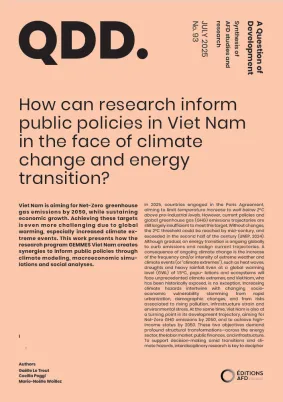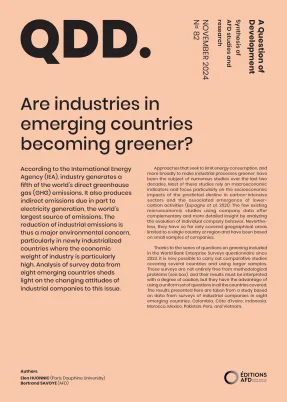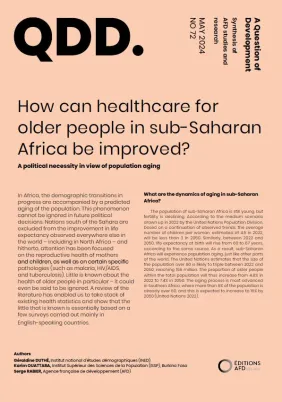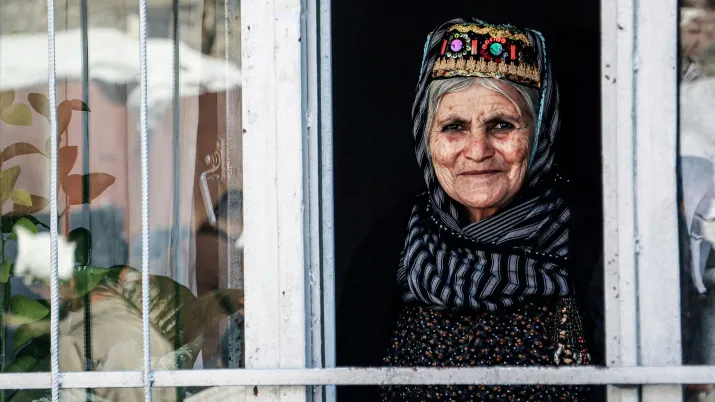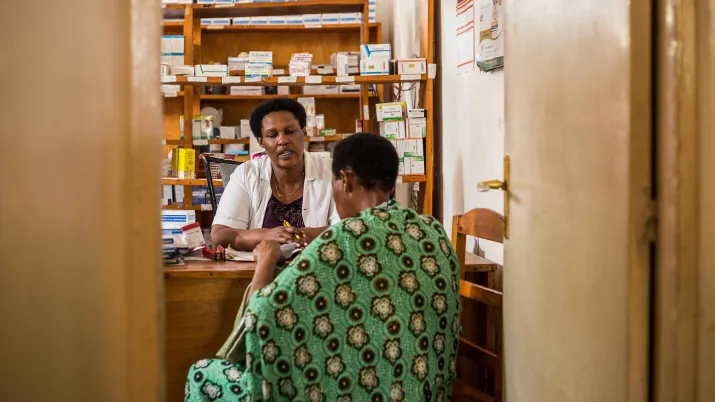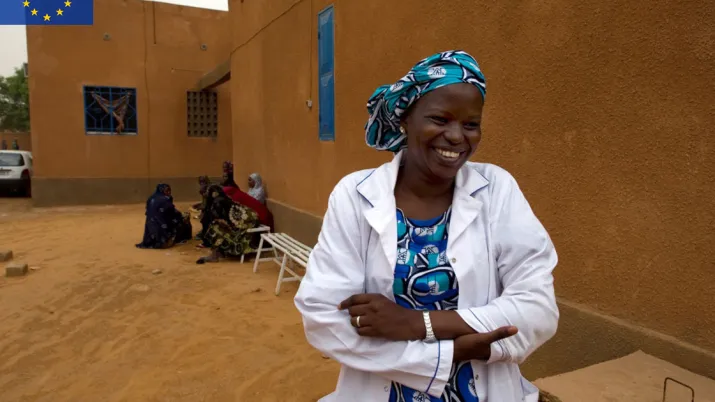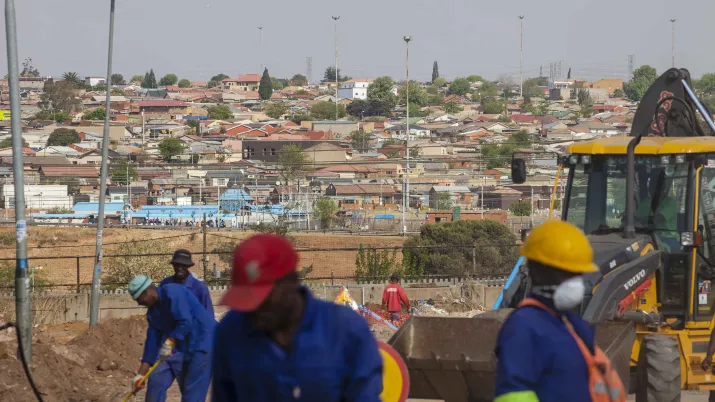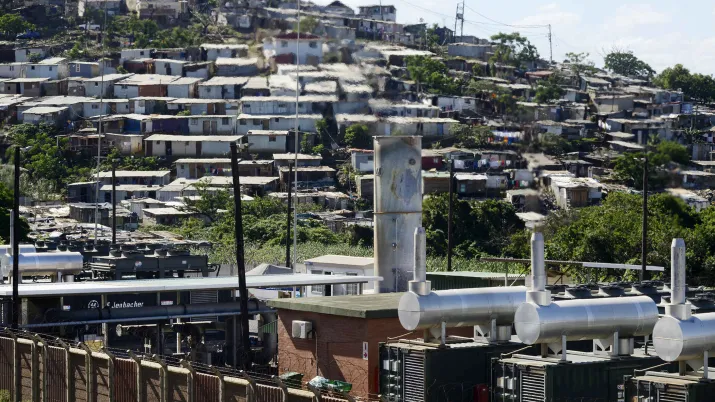 ESTEEM Cambodia is more than just a modeling exercise. It is a dynamic macroeconomic tool designed to help Cambodian policymakers make informed decisions in real time and plan for a fair and sustainable green transition. By linking energy, fiscal, and social dimensions, the project supports the government in identifying and managing the economic and structural risks of the low-carbon transition.
ESTEEM Cambodia is more than just a modeling exercise. It is a dynamic macroeconomic tool designed to help Cambodian policymakers make informed decisions in real time and plan for a fair and sustainable green transition. By linking energy, fiscal, and social dimensions, the project supports the government in identifying and managing the economic and structural risks of the low-carbon transition.
Context
Since achieving peace in the early 1990s, Cambodia has undergone rapid economic growth driven by the garment, tourism, and construction sectors. The country is expected to graduate from least developed country status by 2030. This shift from agriculture to manufacturing has led not to more jobs, but to different ones, increasingly formal and urban, contributing to poverty reduction, while also deepening Cambodia’s dependence on fossil fuels and imported electricity.
To sustain growth while pursuing its climate ambitions, the Royal Government of Cambodia has outlined clear strategies for a low-carbon transition. This transformation, however, also brings new macroeconomic and fiscal challenges, against the backdrop of rising energy demand, external trade vulnerabilities, and pressures on public finances. Understanding these challenges and how they interact is essential to design a feasible and financially viable strategy for the energy transition.
Objectives
The ESTEEM Cambodia project supports the Cambodian government in preparing a feasible and financially viable strategy for the country’s energy transition. Through macro-economic modelling activities, it aims to:
- Identify macroeconomic risks that could arise during the shift to cleaner energy, such as on public debt, employment, income inequality and monetary stability.
- Explore how different energy scenarios interact with the overall economy.
To achieve this, research teams based in Paris and in Phnom Penh are designing a macroeconomic model tailored to Cambodia’s economy. They are working closely with key ministries to make sure the model becomes an effective tool for strategic planning. This will help policymakers, especially the Ministry of Economy and Finance, make informed decisions and design a long-term strategy towards carbon neutrality.
WHAT IS ESTEEM?
The ESTEEM Cambodia model is an adaptation of the ESTEEM model developed by AFD.
This model helps identify the transition risks faced by developing economies, allowing policymakers to anticipate these risks and to design a transition trajectory tailored to each country’s specific context.
Method
The ESTEEM Cambodia project marks the second phase of a collaboration between the Royal Government of Cambodia and AFD. It builds on the results of a first phase, which created a user-friendly energy model called CEPIA, designed for the Cambodian energy sector. Developed with iED Consult for the Ministry of Mines and Energy, CEPIA produced four energy scenarios based on the Royal Government’s development and climate action plans.
In phase 2, CEPIA will be linked to the ESTEEM model, in order to study the macroeconomic impacts of the four energy scenarios and connect them with broader socio-economic goals (GDP growth, investment, job creation…).
The project is carried out jointly by AFD researchers, Université Grenoble Alpes, and iED Consult, in close collaboration with the Ministry of Economy and Finance. Key members from various local ministries are actively involved in the development of the model, as well as in workshops and training activities, helping to build local expertise in macroeconomic modelling.
Expected results
The project will result in:
- An ESTEEM macroeconomic model adapted to Cambodia, incorporating the energy scenarios from the CEPIA model developed during Phase I.
- A set of simulations analyzing the macroeconomic implications of Cambodia’s four energy transition scenarios.
- An interactive tool that can be used by government officials to simulate different scenarios and policies, particularly related to the energy transition.
Contact
- Guilherme MAGACHO, AFD
- Isabelle FERAUDO, Université Grenoble Alpes
- Gaëlle LE TREUT, AFD
- Seav Er HUY, AFD Phnom Penh
- Somalyneth SARBOEUN, AFD Phnom Penh
Want to stay updated on AFD’s latest research?
For further reading
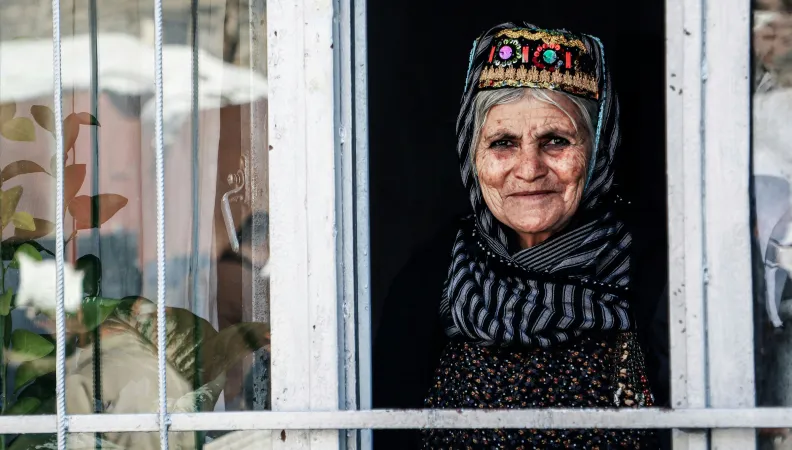 © Public domain Focusing on three countries in the Western Balkans (Albania, Bosnia and Herzegovina, North Macedonia), this multidisciplinary research project will explore the challenges of demographic aging and how they impact socio-economic and climatic contexts, as well as current and future public policies in each country studied.
© Public domain Focusing on three countries in the Western Balkans (Albania, Bosnia and Herzegovina, North Macedonia), this multidisciplinary research project will explore the challenges of demographic aging and how they impact socio-economic and climatic contexts, as well as current and future public policies in each country studied.
Context
According to the United Nations, aging is an “unprecedented event in human history.” The year 2020 marks a historic turning point: the curves showing the proportion of people aged 65 and over on the one hand, and people under the age of five on the other, are crossing and heading in sharply divergent directions.
These changes, already underway in Europe and the Balkans, herald major health, social, and economic challenges in the coming decades, as well as a demographic decline that is already underway. To address these challenges, it will be necessary to confront inevitable changes in lifestyles, increase investment in social protection policies, reform institutions, and encourage technological innovation. Without specific public policy actions, the decline in the working-age population will make it more difficult to support retirees, age-related health problems will worsen, and the quality of life of older people will be reduced.
Objectives
This research project aims to identify, describe, and clearly analyze the links between demographic dynamics and socio-economic issues in three countries in the Western Balkans.
To this end, it focuses on population dynamics (mortality/morbidity, aging, migration) and patterns of (de)population and land use planning (territorial identities, urbanization/rural areas, particularly in relation to natural environments). It will also analyze their impacts and interactions with current and future socio-economic issues in each of the three countries concerned (women's access to the labor market, migrant remittances, changes in social protection systems, etc.).
The aim is to clearly identify, describe, and analyze these links, both to inform academic research and to inform public policy choices in the three countries concerned. AFD will also be able to use these results in its discussions with public authorities in Albania, Bosnia and Herzegovina, and North Macedonia.
Method
The project is led by a scientific partner, the Center for Research and Policy Making (North Macedonia), who assembled a multidisciplinary team of experts in demography, migration, economics and financial policy, employment and labor mobility, gender equality, the environment, and social protection policies (health and retirement).
Expected results
This multidisciplinary project (sociology, political science, economics) is structured around three components:
- Production of an academic literature review on the challenges of aging in the Balkans region (advances and scientific knowledge on the socio-economic, territorial, and migratory challenges related to aging at the regional level);
- Three country studies;
- Publications and promotional activities to disseminate knowledge on the one hand and fuel dialogue between AFD and its public partners on the other.
Want to stay updated on AFD’s latest research?
Contact
-
Serge RABIER
Research Officer, Social Demographer

For further reading
Discover other research projects
Assessing equity in health spending in Sub-Saharan Africa - Burkina Faso, Malawi, Zambia
Completed
2018 - 2020
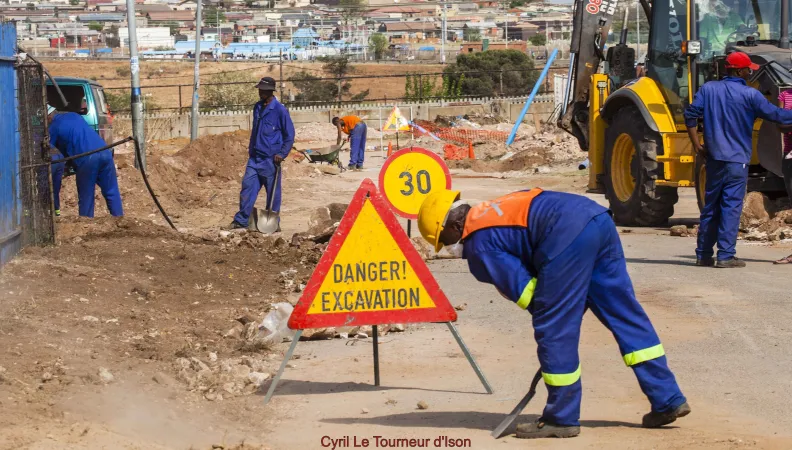 Legal notice EU (project) What is the role of Public Employment Programmes (PEPs) in South Africa’s social protection system, and how do they contribute to employment, inclusion, and inequality reduction? The Extension of the EU-AFD Research Facility on Inequalities program seeked to answer this question.
Legal notice EU (project) What is the role of Public Employment Programmes (PEPs) in South Africa’s social protection system, and how do they contribute to employment, inclusion, and inequality reduction? The Extension of the EU-AFD Research Facility on Inequalities program seeked to answer this question.
Context
In South Africa, escalating unemployment, rising poverty and structural inequality remain persistent challenges, with young people and marginalized communities disproportionately affected. Many workers remain excluded from stable formal employment, and rely on social grants for basic income security. PEPs have emerged as a key policy instrument to address these structural gaps, providing temporary work, income support and skills development opportunities.
These programmes operate alongside traditional social protection measures, including cash transfers and grants. While PEPs offer immediate employment and income, it is critical to understand their broader impact beyond income effects, and how they intersect with poverty reduction, inclusion, and long-term labour market outcomes.
This project is part of the Extension of the EU-AFD Research Facility on Inequalities. Coordinated by AFD and financed by the European Commission, the Extension of the Facility will contribute to the development of public policies aimed at reducing inequalities in four countries: South Africa, Mexico, Colombia and Indonesia over the period 2021-2025.
Objectives
To better understand the role of PEPs within South Africa’s evolving social protection landscape, this study analyzed how they intersect with unemployment, inequality, and social policy. The study highlighted structural inequalities – such as land dispossession, concentrated economic power, and spatial inequities – that perpetuate poverty and unemployment.
In particular, the paper focused on redefining the relationship between social assistance and public employment. The study explored how PEPs can go beyond merely providing income support to leveraging the added value of work, enhancing social inclusion, and fostering skills development. The study revealed how integrated and differentiated strategies are needed in order to address the diverse labour market challenges by advocating for scalable, rights-based employment guarantees and adaptive policy frameworks to balance social and economic imperatives.
Research findings
You will find below the research paper and the "Policy Dialogues" publication related to his project:
- Public Employment Programmes in South Africa’s Changing Social Protection Landscape
- Strengthening Public Employment Programmes in South Africa’s Social Protection Framework
Contact
-
Anda DAVID
Economist, scientific coordinator of the EU-AFD Research Facility on Inequalities

Discover other research projects
Redesigning the South African “Social Relief Distress” grant program for higher impact
Completed
2023 - 2023
Evaluation of local stimulus effects in South Africa: Jobs and grants programmes
Completed
2022 - 2023

